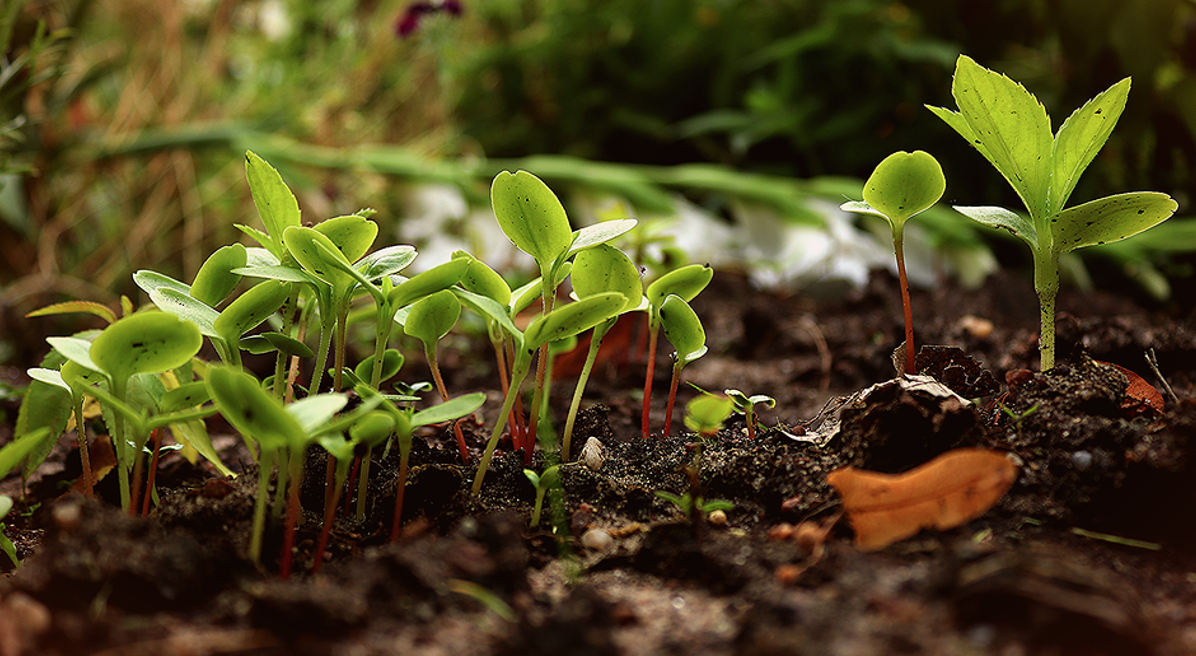Following World War II, mass industrialization took hold in the West. The idea was to produce abundant, cheap and supposedly healthy food to satisfy the demand. Since the 1950’s and 60’s, consumerism has dominated our daily life, the fact of producing and consuming constantly with the only objective: to earn money! To produce more,
so that the majority of resources are consumed by a minority of humanity…and that the inequalities between rich and poor grow even more.
so that poverty and famines continue to serve, and we can’t blame the people suffering from famine for their condition!
so that a third of the food produced goes to the garbage, useless waste knowing that many people are starving…
so that a majority is used to feed cattle, to make agrofuels and for agroenergy…
This is not what we want! Let’s be honest, money is a way to provide for our needs but it does not make us happy. Happiness is to be in good health, to live a quality life surrounded by our loved ones. So, are we ready to sacrifice our health by eating chemicals that fight and control nature?
Nature, our rock!
What is certain is that nature does not need man to survive, but for human beings, it is another thing! Is it possible to live without nature? I don’t think so…
The agriculture of the 50’s and 60’s is a productivist approach that aimed at maximizing the yields per hectare. This was done first of all by a mechanization (tractors, harvesters,…) of the work of the land. This replacement of men and women precipitated the migration to the cities and a depopulation of rural areas. This has had many negative consequences for the small farmers who produce the majority (75%) of our food. Since the very large farmers produce large volumes of monocultures (soy, rice, wheat, potatoes,…) where a tiny part is dedicated to our food. Secondly, by promoting this mass agriculture, our plates are filled with cheap calories, but of poor quality. For one calorie, it takes 10 to 12 calories of fossil energy. This agriculture destroys the ecosystem.
The future is agroecology
We need more diversity in our plates. To satisfy this need, agroecology responds by favoring polyculture or crop rotation systems. It is a return to the essential that we need where the use of resources (land, water, biomass) is encouraged to protect ourselves from the increased volatility of fossil fuel prices. Indeed, oil is becoming more and more scarce, expensive and is disrupting the climate. It is necessary to change course, to reduce our dependence on international markets and to prioritize regional and local markets[1].
As Lavoisier said, “nothing is created, nothing is lost, everything is transformed”! Everything is maintained and replenished!
It is by joining forces; citizens, small farmers and local authorities, that we can consume and produce to have better food on our plates. The transition must come from below, we are all actors of change. And it is by coming up with social innovations to our authorities that we will be able to encourage them to better understand our desires and to accompany us in this transition.
According to Pierre Rahbi, one of the pioneers of ecological agriculture, we can all be hummingbirds, it is by bringing our little drop of water that we participate in the change.
He quotes “One day, we will have to respond to our true vocation which is not to produce and consume endlessly, but to love and admire, and to take care of life in all its forms”[2].
Here are some beautiful initiatives that take care of our food:
Local producers: La ferme de la Rigaudière, La ferme de Froidefontaine, la ferme du Val-Notre-Dame,…
Urban farming: Peas & Love
Short circuit supermarkets: The Barn, Le marché de la glacière,…
Financing platforms supporting food initiatives: Miimosa, la ruche qui dit oui,…
E-commerce: Kazidomi, E-farmz, C’tout bon,…
Incubators: L’arbre qui pousse
Foundations: Mbeka Foundation
Restaurants: Tero,…
Citizen projects: Réaction Belgium by MakeSense.
For a few years, the healthy and sustainable food of short circuit, going from the producer to the consumer by the least possible intermediaries, has more and more adherents, provided that it lasts. Let’s go back to our roots, let’s live in harmony with nature, it will only do us good.
If you have other projects in mind related to education and agriculture, please let us know!
Author: Emilie de Gerlache for Semlex for Education.
1] Demain et après… un nouveau monde en marche, Cyril Drion.
2] https://www.colibris-lemouvement.org


